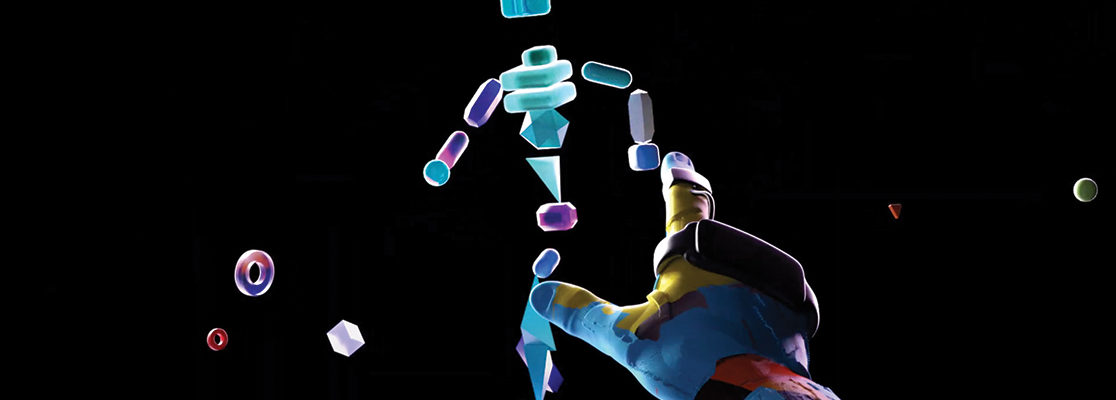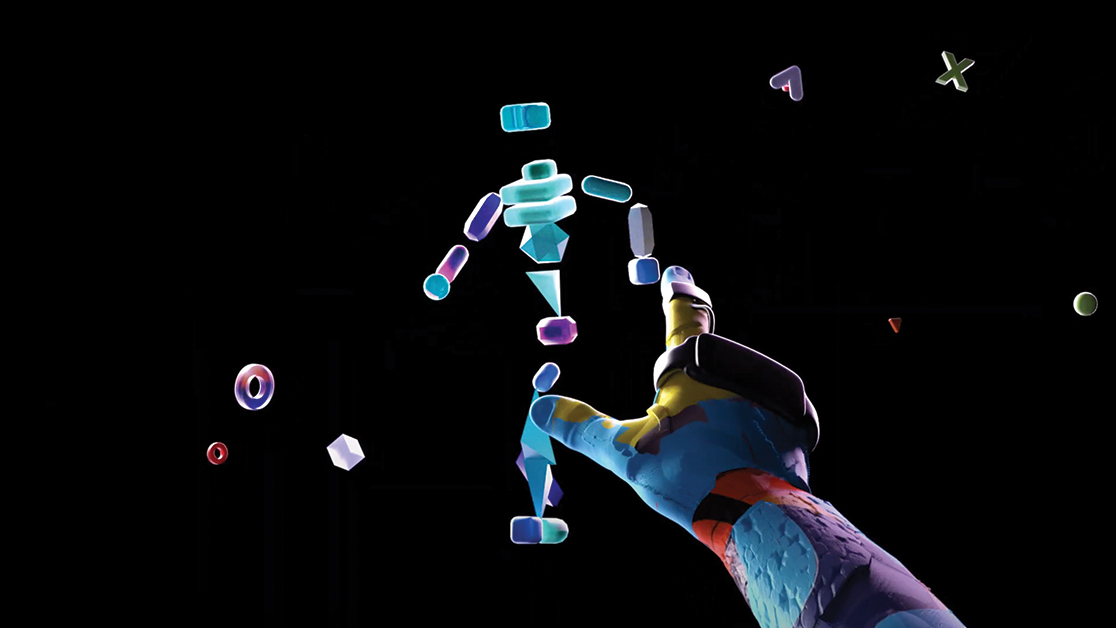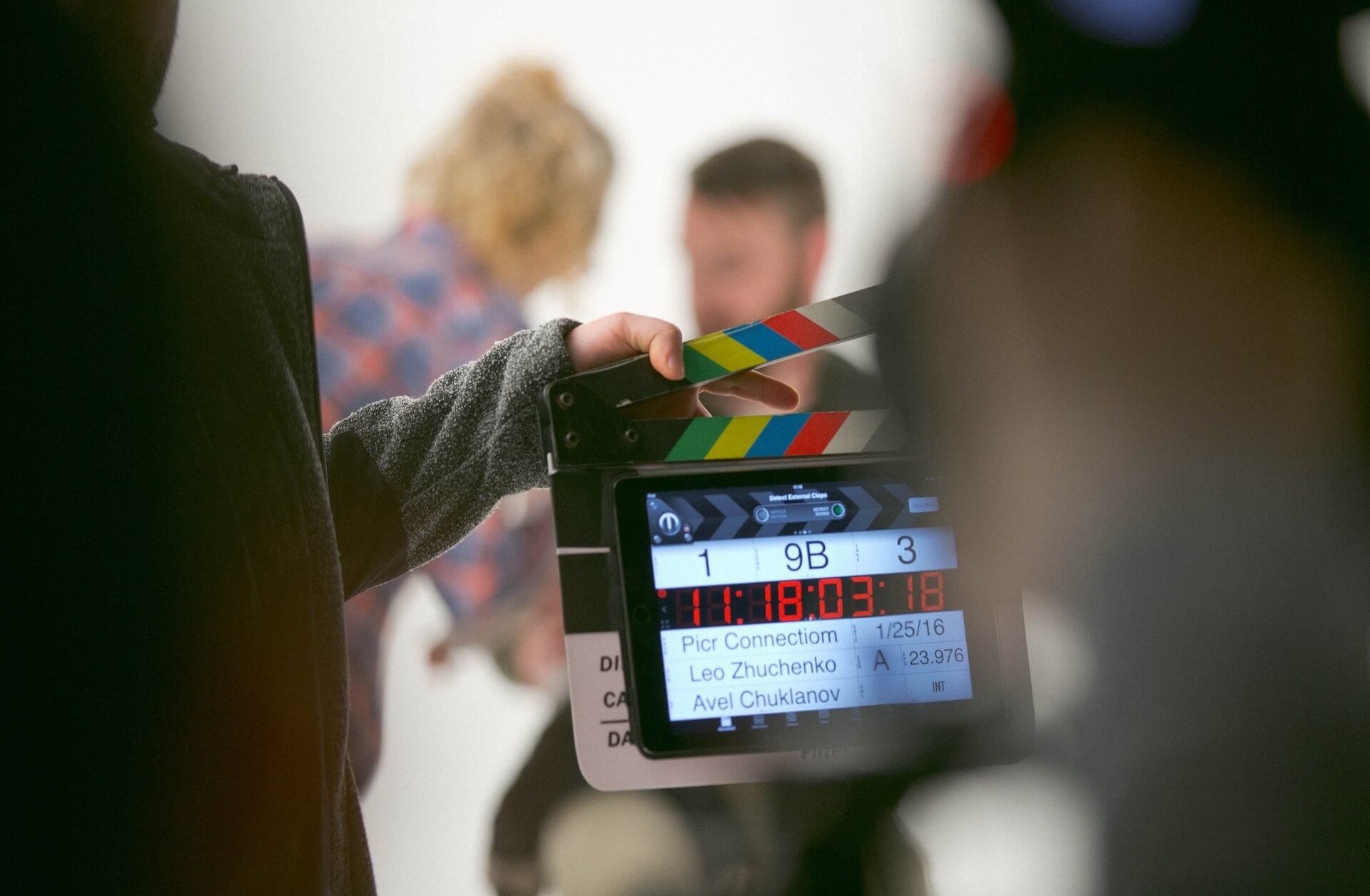Studying Film Production with SAE will give you a fantastic schooling in multiple aspects of the industry from working with high-end digital cinema cameras and production equipment to editing films in our state-of-the-art post production suites. You can get in touch to find out more about our courses and check out the wide variety of careers you can forge in the film industry below…
The film industry features a multitude of different jobs, careers and opportunities, all of which are needed to take film ideas from the drawing board to the screen.
From Camera Operators to Make-up Artists, each job requires various (and sometimes unique) skills. Of course, every project is different with a specific budget and resources – this means you might not see all of these professionals contributing to every project. However, if there is a big budget available, then these are some of the jobs that you might expect to see as part of the process of making a film become a reality.
In our blog, we explore the various roles and what they involve.
What are the best entry-level jobs in the film industry
Although courses such as SAE’s Film Production degree provide a thorough educational grounding in what is needed to succeed in the film industry, on-set experience is an equally essential aspect of building a career.
Our students recently enjoyed some invaluable on-set experience themselves, working with film tutor Joshua Oliver on two forthcoming film projects, Stripped Down and Hide.
Once they have ascertained what path they want to take, many early-career filmmakers start working on short films, student films, or modest independent productions before progressing to bigger-budget studio features.
Your film industry career trajectory and the kinds of entry-level jobs you aim for depend on your background and the area of the sector you want to explore.
How to find opportunities in the film industry
Again, the kind of opportunity you are looking for will dictate how you should seek them out.
If you want to work in the technical side of the industry, then you will need to demonstrate your skills with camera equipment or abilities to put together a great edit in a post-production suite. Perhaps you want to invest your energies into scriptwriting or working on a production’s sound.
Although opportunities can come from different resources, some general rules can apply – maintaining an updated professional profile online (such as on LinkedIn), honing your networking skills, and being able to politely and professionally contact those who might be able to support you can all positively impact your career aspirations.
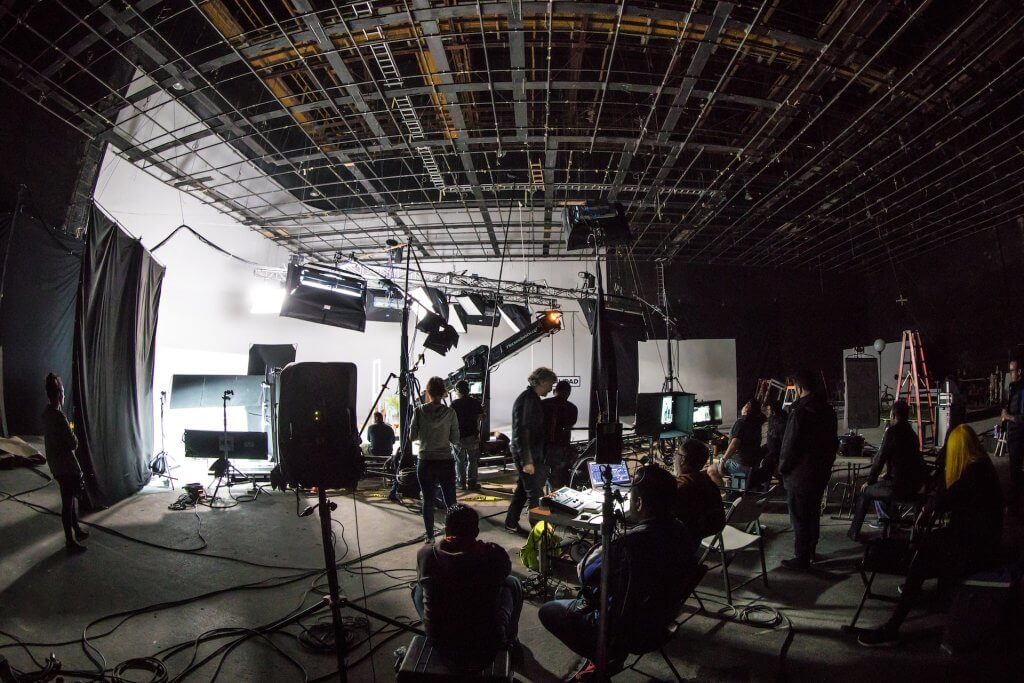
Here are some potential roles that studying a Film Production degree can help prepare you for…
Film producer
A film project is often driven from inception to completion by the Film Producer.
For production companies, this is a very important role as Film Producers handle myriad different parts of a film project. This can include planning, coordination, casting, directing, editing, finances, marketing, and distribution.
Whether affiliated with a production company or working independently, Film Producers oversee the film process from start to finish. They are often at the heart of a project and work to ensure different teams and professionals liaise with each other effectively.
Film crew
The film crew is the overall team that includes various different departments, roles and responsibilities to facilitate the creation of a film project.
The crew is different to the cast. The cast includes the actors that appear in the film, whereas the crew work behind the scenes to make the film happen. Both teams will need to spend their time on set and be confident working with each other.
Film editor
Film Editors assemble footage of feature films, TV shows, and documentaries into a seamless end product.
They need to be technically skilled in editing software such as Adobe Premiere Pro, and Adobe Creative Cloud and capable of manipulating plot, score, sound, and graphics to refine a narrative into a continuous (and hopefully engaging) whole.
Director
A Film Director controls a film’s artistic and dramatic aspects and visualises the screenplay (or script). They are the seen as the creative leads of a film and TV project and are responsible for the project’s final product.
The Assistant Director is there to support the Director in delivering their creative vision. This could entail performing research, sourcing cast members or stepping into the role of director when needed.
Lighting technician
Lighting Technicians have a thorough understanding of how to set up lighting equipment, carry out tests, position lights, and manage all traces or filters fitted over lights to create effects.
They work as part of the camera and light crews.
Production assistant
Production Assistants are responsible for the smooth administration and running of the production office.
These professionals work in the production management department and, depending on the type of visual media being made, could be office-based, or out on location
Camera operator
Camera Operators are skilled in operating TV, video, or film cameras to record images or scenes. On the job, this role can involve composing and framing each shot, applying the technical aspects of light, lenses, film, filters, and camera settings to achieve effects requested by directors.
Read our interview with Film Production alumnus Ben Eeley on his career journey from our London campus to his current role as a Steadicam Operator for music videos, live theatre, TV and more.
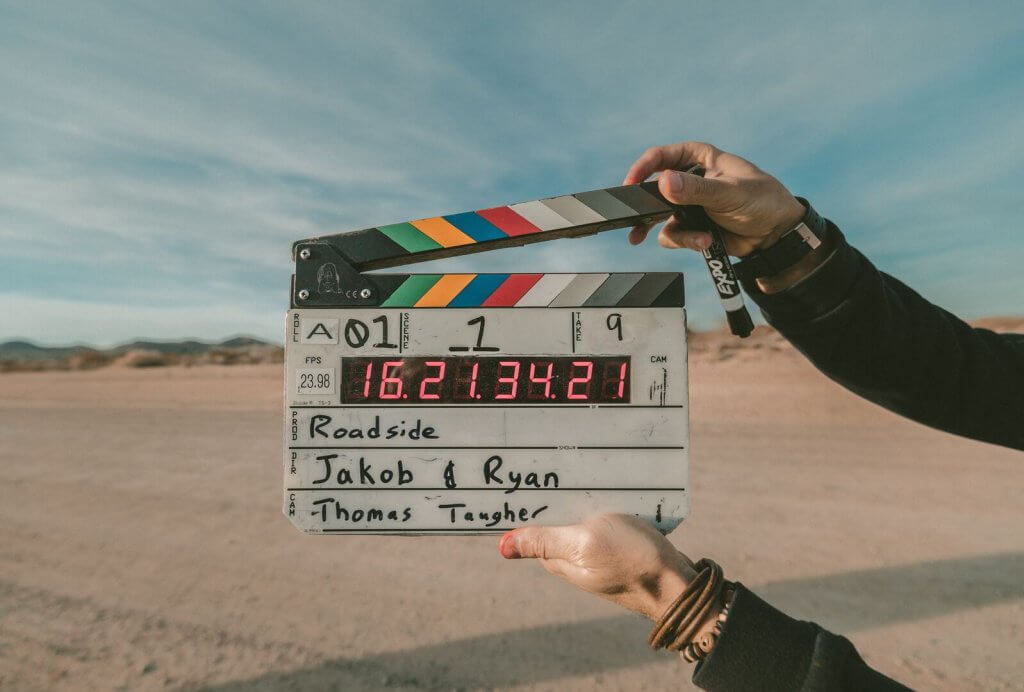
Script reader
A Script Reader is responsible for reading and reviewing spec scripts (uncommissioned and unproduced film and television screenplays). They also write reports, also known as script coverage, that detail the positive and negative qualities of these screenplays.
Sound technician
Sound Technicians are responsible for assembling, operating and maintaining the technical equipment used to record, amplify, enhance, mix or reproduce sound.
They will identify the sound requirements for a given task or situation and perform the appropriate actions to produce the best sound possible.
Supervising sound editors
Supervising Sound Editors are part of the sound department and responsible for the finished sound in movies and TV shows. The process involves selecting, polishing, and assembling three primary elements (when they are featured)—recorded dialogue, sound effects, and music—into a complete soundtrack.
Video editor
Video Editors manage material such as camera footage, dialogue, sound effects, graphics and special effects to produce a final film or video product. This is a key role in the post-production process and can determine the quality and delivery of the final product.
Location manager
Location Managers work on logistics, sourcing an appropriate place to shoot, then making sure cast and crew know where this is and how to access it. They negotiate parking, noise reduction, power sources, catering requirements and any official permissions that may be needed with a site’s management or owner.
Programme researcher
Programme Researchers organise, plan and coordinate the production of TV programmes and undertake relevant background research. This can ensure a piece of film appears authentic and realistic.
Director of photography
The Director of Photography works on the recording of a film, TV production, music video or other live-action project. They will need to liaise effectively with other members of the team (such as camera operators) where appropriate.
Costume designer
Whether purchasing, creating, or tailoring costume pieces, Costume Designers are in charge of the costume team, and budget for a project. They also schedule fittings with actors and oversee costume alterations and repairs, as well as providing actors and stagehands with guidelines for their proper care.
Make-up artists
Make-up Artists work closely with costume designers and hairdressers to ensure that each actors’ look complements every aspect of the script. Having created individual designs they make sure that actors are comfortable to ensure they can give their all in a performance.
Casting manager
The Casting Manager works with directors and producers to understand their requirements for the performing artists.
They will often work with a team of assistants to plan casting activities before the production commences.
Screenwriter
A Screenwriter creates or adapts a story into a script for the entertainment industry. These scripts are written in a specific way to help readers understand the story, setting, and emotion of how it will be seen and heard on a screen.
Production accountants
Production Accountants are responsible for managing finances and maintaining financial records during film or TV production, working closely with the producer and the production office.
They need to have an overview of the business side of a project and be able to have a good understanding of cash flow.
STUDY FILM Production at SAE
If you want to work in film production, get to grips with the latest video editing software and hone your skills in a uniquely collaborative environment, then our Film Production degree could be for you.
With high-end digital cinema cameras and production suites, our facilities and expert tutors are well placed to give your career the best possible start in this fast-paced and dynamic industry.





